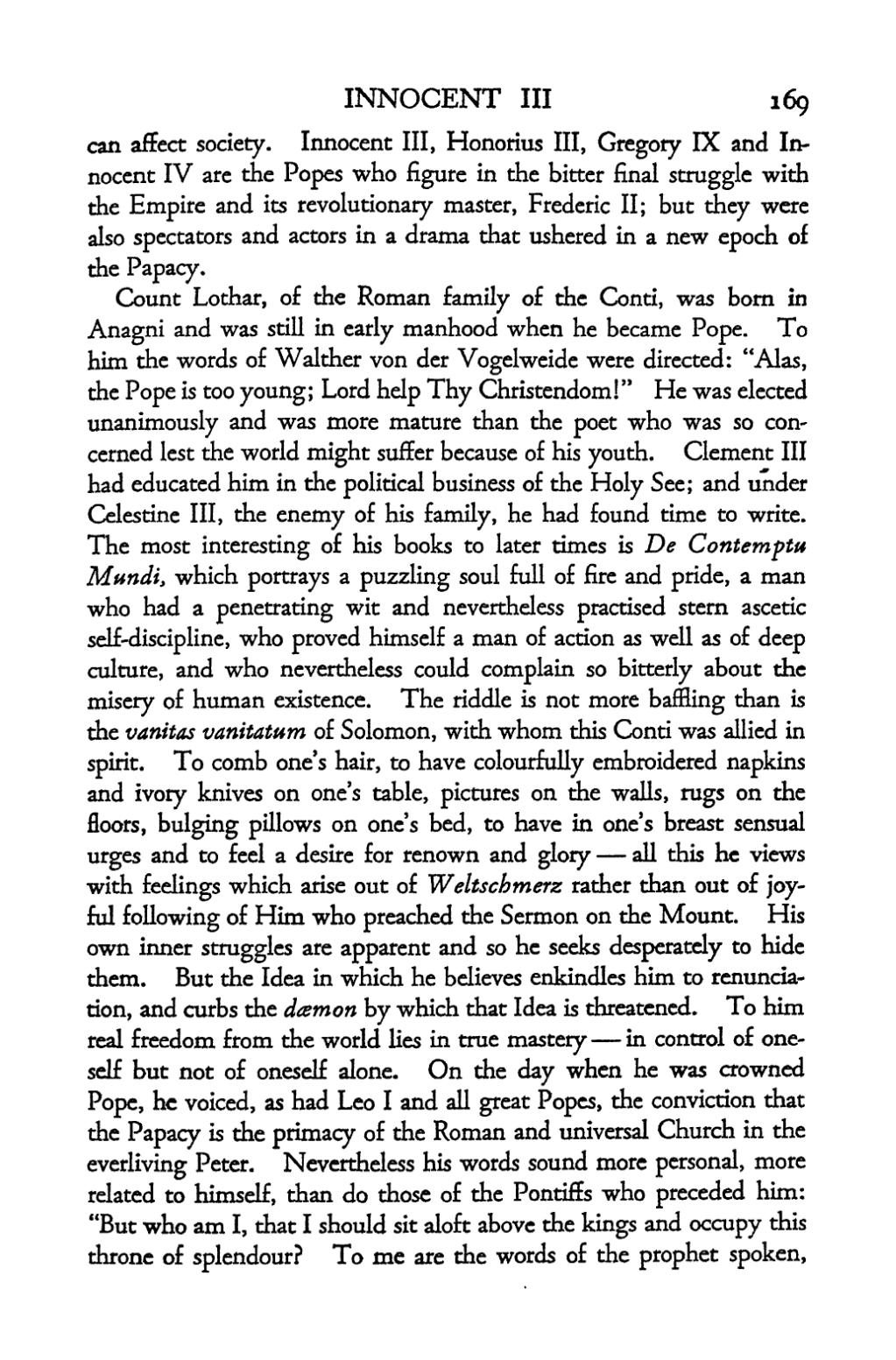III 169
can affect society. Innocent III, Honorius III, Gregory IX and In- nocent IV are the Popes who figure in the bitter final struggle with the Empire and its revolutionary master, Frederic II; but they were also spectators and actors in a drama that ushered in a new epoch of the Papacy.
Count Lothar, of the Roman family of the Conti, was born in Anagni and was still in early manhood when he became Pope. To him the words of Walther von der Vogelweide were directed: "Alas, the Pope is too young; Lord help Thy Christendom!" He was elected unanimously and was more mature than the poet who was so con- cerned lest the world might suffer because of his youth. Clement III had educated him in the political business of the Holy See; and under Celestine III, the enemy of his family, he had found time to write. The most interesting of his books to later rimes is De Contempts Mundi, which portrays a puzzling soul full of fire and pride, a man who had a penetrating wit and nevertheless practised stern ascetic self-discipline, who proved himself a man of action as well as of deep culture, and who nevertheless could complain so bitterly about the misery of human existence. The riddle is not more baffling than is the vanitas vanitatttm of Solomon, with whom this Conti was allied in spirit. To comb one's hair, to have colourfully embroidered napkins and ivory knives on one's table, pictures on the walls, rugs on the floors, bulging pillows on one's bed, to have in one's breast sensual urges and to feel a desire for renown and glory all this he views with feelings which arise out of Weltschmerz rather than out of joy- ful following of Him who preached the Sermon on the Mount. His own inner struggles are apparent and so he seeks desperately to hide them. But the Idea in which he believes enkindles him to renuncia- tion, and curbs the damon by which that Idea is threatened. To him real freedom from the world lies in true mastery in control of one- self but not of oneself alone. On the day when he was crowned Pope, he voiced, as had Leo I and all great Popes, the conviction that the Papacy is the primacy of the Roman and universal Church in the everliving Peter. Nevertheless his words sound more personal, more related to himself, than do those of the Pontiffs who preceded him: "But who am I, that I should sit aloft above the kings and occupy this throne of splendour? To me are the words of the prophet spoken,
170
